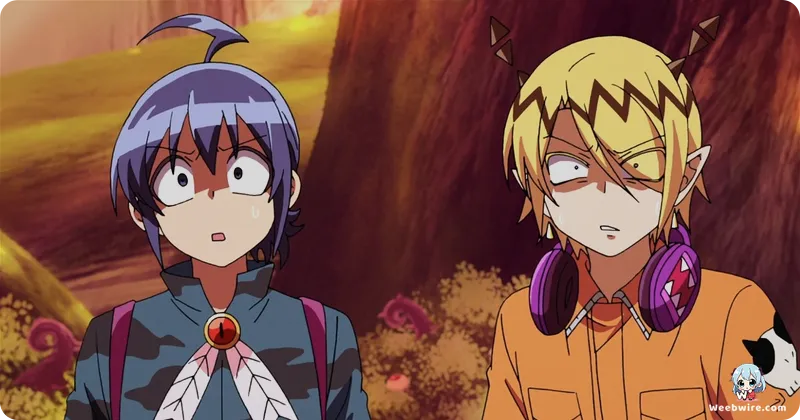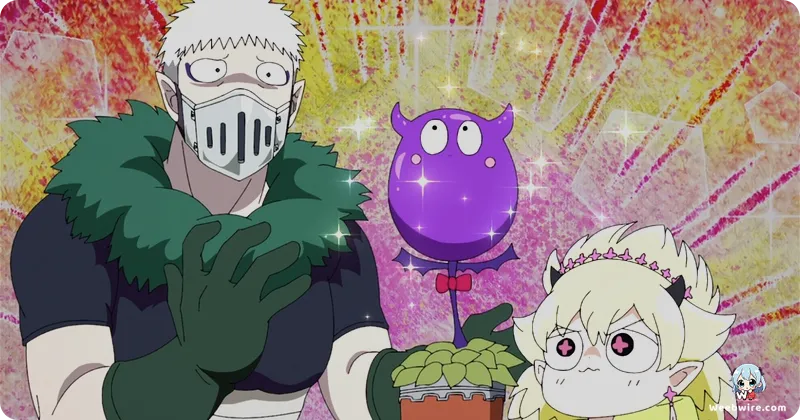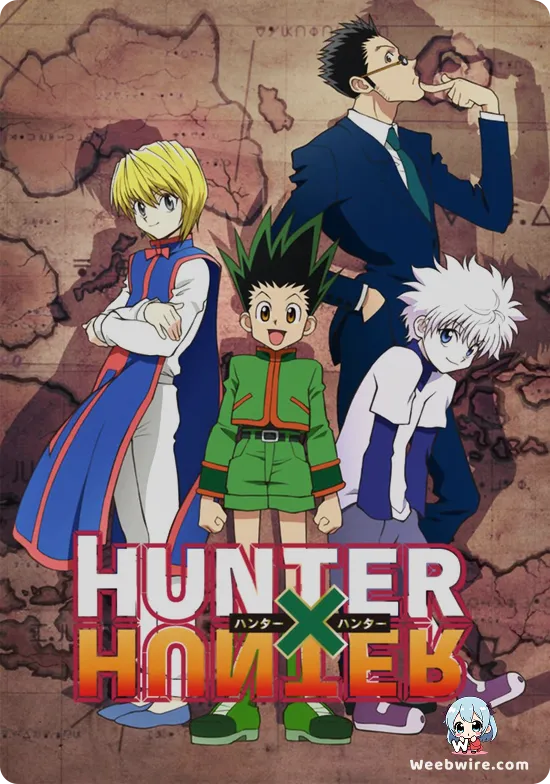Unveiling the Hidden Brilliance: The Enduring Appeal of Welcome to Demon School! Iruma-kun Season 3

The Enchanting Depths of the Demon Realm
Welcome to Demon School! Iruma-kun Season 3 continues to enthrall audiences, distinguishing itself with an enchanting blend of comedic brilliance, heartfelt narratives, and a world brimming with delightful eccentricities. Beyond Suzuki Iruma's seemingly straightforward adventures in a demon school, a deeper dive reveals a treasure trove of subtle intricacies that elevate its appeal, making every viewing a profoundly rewarding experience. The series isn't just about a human navigating a demonic world; it's a masterclass in nuanced storytelling and character development, wrapped in a vibrant, often hilarious, package.
Original manga author Osamu Nishi's ingenious world-building is paramount to the series' success. The demon realm is not merely a backdrop but a meticulously crafted entity, rich with its own unique customs, hierarchies, and bizarre logic. For instance, the demon ranking system, a cornerstone of their society, ingeniously bases its hierarchy on the Hebrew alphabet. This subtle yet profound detail reflects a sophisticated power progression, where each letter signifies a distinct level of demonic prowess and social standing. It's a clever integration of real-world linguistic elements into a fantastical setting, adding an unexpected layer of lore and depth that rewards attentive viewers. This intricate system influences everything from class assignments to social interactions, making the demon world feel truly alive and well-thought-out.
Furthermore, the concept of 'food' consistently delivers comedic relief while simultaneously reinforcing the alien nature of the demon realm. What appears grotesque and utterly unappetizing to humans—like 'mud stew' or 'slime jelly'—is exquisitely delicious and highly sought after by demons. This inversion of culinary norms highlights Iruma’s unique position as a human in this world, constantly grappling with cultural differences, and showcases his remarkable adaptability. These gastronomic quirks are not just for laughs; they serve to emphasize the fundamental differences between human and demon physiology and preferences, making Iruma's journey of assimilation even more compelling and often hilariously awkward.

A Cast of Unforgettable Personalities
The vibrant cast of Welcome to Demon School! Iruma-kun is rich with delightful details and character quirks that contribute significantly to the show's charm. Each character, no matter how minor, feels distinct and purposeful.
Valac Clara: The Embodiment of Spontaneity
Valac Clara, the eccentric and endlessly energetic demon, is a prime example. Her magical 'pocket' ability, which allows her to pull anything from hammers to entire picnic sets out of thin air, perfectly mirrors her impulsive and unpredictable personality. This power isn't just a plot device; it's an extension of her very being, leading to spontaneous chaos and heartwarming moments alike. Her voice actress, Ayaka Asai, deserves immense credit for enhancing Clara with unparalleled energetic spontaneity, bringing a unique vocal cadence and infectious enthusiasm that makes Clara one of the most beloved characters.
Opera: The Enigmatic Guardian
Opera, Lord Sullivan's stoic and incredibly capable assistant, features a deliberately ambiguous gender. This conscious choice by the creators emphasizes their unwavering actions, formidable presence, and unwavering loyalty over conventional gender cues. Opera's character design and demeanor establish a remarkably progressive and powerful figure whose strength and dedication speak for themselves, making them a compelling and intriguing presence in the series.
Kalego Naberius: The Reluctant Familiar
Kalego Naberius, Iruma’s perpetually annoyed and strict homeroom teacher, undergoes one of the series' most iconic transformations. Due to Iruma's accidental pact, Kalego can transform into a fluffy, diminutive familiar, affectionately known as 'Kalego-sensei.' This comedic highlight starkly contrasts his formidable demon form with his helpless, adorable familiar state, providing endless laughter and subtly developing his reluctant affection for Iruma. The visual gag of a powerful demon reduced to a tiny, grumpy fluffball is a consistent source of humor and a testament to the show's ability to blend slapstick with genuine character growth.
Animation Excellence and Heartfelt Themes
Bandai Namco Pictures, the animation studio behind Welcome to Demon School! Iruma-kun, deserves immense praise for faithfully translating Osamu Nishi's distinctive art style and comedic timing from the manga to the screen. Their animation captures vibrant character expressions and dynamic movements with remarkable precision, often employing subtle visual cues and exaggerated background reactions that amplify comedic impact. These visual gags and nuanced character animations add significant re-watch value, as viewers can catch new details and jokes with each viewing. The studio's commitment to maintaining the manga's unique aesthetic ensures that the series retains its charm and visual identity.
Ultimately, the series truly excels in its heartwarming portrayal of found family and genuine friendship. Iruma’s innate kindness, empathy, and unwavering desire to help others draw a diverse array of characters to him, forging unbreakable bonds with his classmates, guardians, and even his teachers. This core theme anchors the fantastical chaos and comedic antics, prioritizing relational growth, mutual support, and acceptance over typical power scaling or battle-centric narratives. While Iruma does grow stronger, his true strength lies in his ability to connect with others and build a supportive network. The series consistently reminds viewers that even in a world of demons, the most powerful magic is kindness and the bonds forged through genuine connection.
The enduring popularity of Welcome to Demon School! Iruma-kun Season 3 is a testament to its thoughtful storytelling, brilliant characterizations, and exceptional animation. It's a delightful journey into a world where monstrous appearances often conceal the biggest hearts, consistently revealing new layers of brilliance and leaving audiences eager for more. The show is a refreshing take on the fantasy genre, proving that a series can be both uproariously funny and deeply touching, all while building a rich, immersive world.
Credits
Welcome to Demon School! Iruma-kun Season 3
Author
Osamu Nishi
Cover Art
Satohiko Sano
Studio
Bandai Namco Pictures
Publisher
Akita Shoten
Producers





